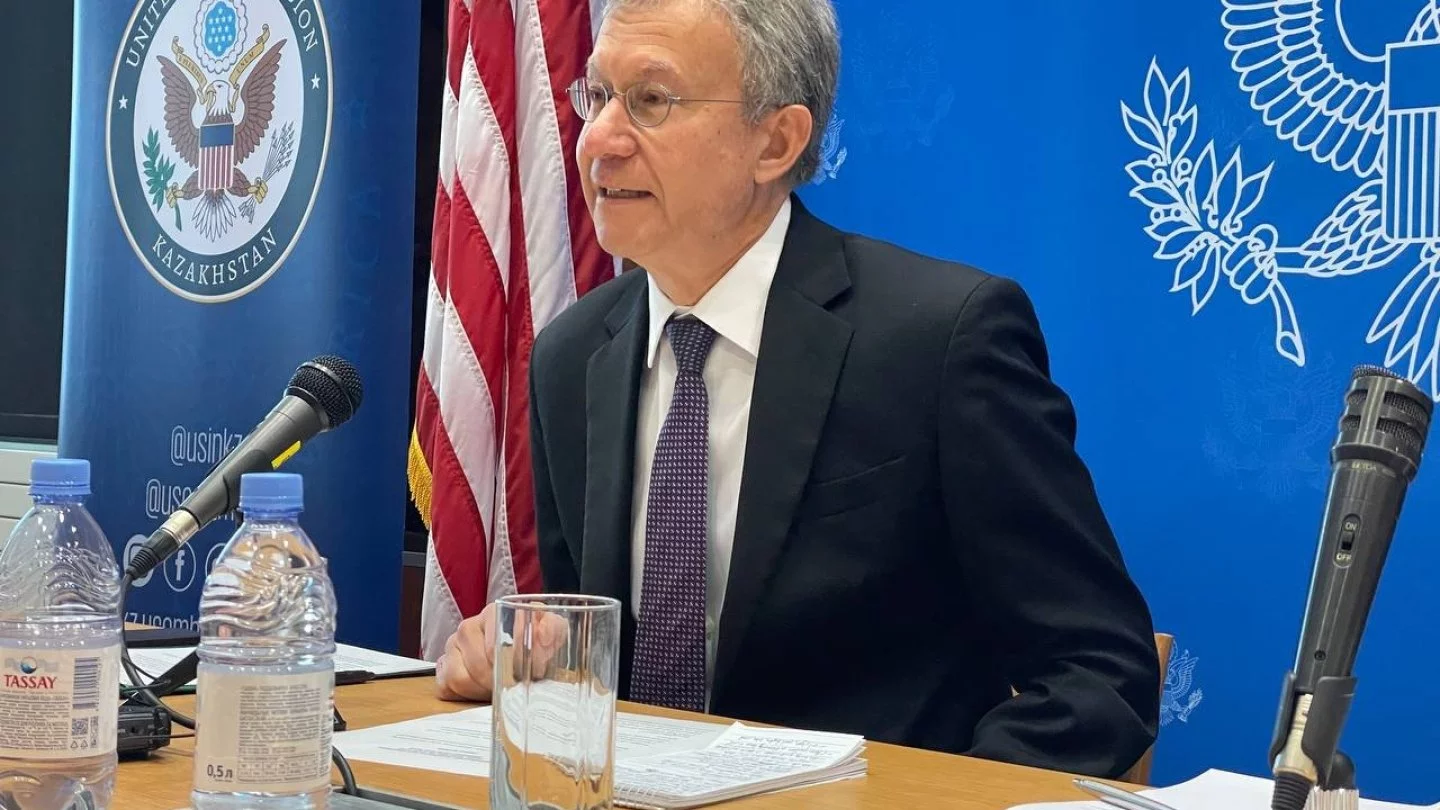Sanctions, CPC, and More: Daniel Rosenblum Speaks at Roundtable in Astana
 Daniel Rosenblum Photo: Orda
Daniel Rosenblum Photo: Orda
US Ambassador to Kazakhstan Daniel Rosenblum commented on the parallel import of goods from Kazakhstan to Russia.
At the Round table in Astana, Rosenblum highlighted the Kazakh government's efforts in preventing the import of goods that Russia can use directly in the war against Ukraine.
The USA and Kazakhstan have worked very closely on the issue of sanctions and control of certain goods that should not be sold to Russia. I think you may recall that some US officials came in late April, representatives of The US Treasury Department and The Commerce Department of our government. And then again in early June from The State Department to discuss this issue. And so, this is an ongoing discussion, but I will say that we feel that the actions taken by the Government of Kazakhstan to deal with this have been effective. The intention is the right intention, that is to stop trade in goods and services that can be potentially be used for military applications, Rosenblum said.
Nevertheless, the Ambassador acknowledged that this is a complex process that requires constant interaction between governments.
Meanwhile, President Qasym-Jomart Toqayev considers the sanctions confrontation absolutely counterproductive. He stated this during an official visit to Germany in an interview with Kazinform.
CPC
Energy Minister Satkaliyev has previously stated the need to ensure the stability of the CPC's work at the political level. This initiative has also been topical in the USA.
The US Ambassador to Kazakhstan Daniel Rosenblum stated this at the Round table in Astana.
"Yes, we had discussions about the CPC security. And these discussions were not only with the government of Kazakhstan, but also with representatives of various companies that rely on CPC in their work, because, of course, they are interested in uninterrupted and safe transportation of oil. So far, these conversations have been from the discussion category, from the discussion category. As such, there were no requests for help," the ambassador said.
He noted the difficult political situation in the region. According to him, it would be good if there was some kind of agreement that would help ensure the safety of commercial and civil facilities and infrastructures.
It's Different
The United States is also monitoring the "list of foreign agents" in Kazakhstan. Ambassador Rosenblum believes that there is so far no reason to worry.
The US Ambassador to Kazakhstan said that The US is monitoring how Kazakhstan composes the list of individuals and organizations receiving foreign funding. He understands why many compare it with the laws on foreign agents in other countries, but notes that this is different.
We know about these lists and this is what our embassy is now closely monitoring it. And we have also been tracking the reactions of NGOs and media to the publication of the list. Some people have been making comparisons between this list and laws in other countries: so-called foreign agents. I can understand why people are making the analogy, the comparisons, but I would maintain that at the moment it's different than the other laws. As I understand it, being on the list now does have a legal consequence for the organization, a specific legal consequence, and it does not impose operational restrictions on their activities,the ambassador said.
He noted that the embassy is keen on keeping things this way. If any legal problems arise, however, the embassy will pose certain questions to the Kazakh government.
RMB: The State Revenue Committee has published a list of legal entities receiving foreign funding. The Ministry of Finance explained that this is necessary not only to know which Kazakhstanis receives foreign financing, but also who provides it elsewhere.
Latest news
- Aqtobe Region: Life Sentence Issued in Double Homicide and Hostage Case
- Karakalpak Court Upholds Sentence Against Activist Extradited from Kazakhstan
- Former Qazseleqorgau Officials Sentenced in Corruption Case
- Deputy Commander-in-Chief of the Russian Navy Reportedly Dies in Kursk Region
- Toqayev Sets Priorities for New Transport Minister
- Armenian Parliament Advances Bill to Nationalize Electric Networks of Armenia
- Appeal Withdrawn in Alina Serikova Case, Sentences Remain Unchanged
- Toqayev and Nazarbayev Congratulate Lukashenko on Belarus Independence Day
- Armenia: Foreign Ministry Spokesperson Reaffirms Commitment to South Caucasus Connectivity Initiative, Recalls 'Crossroads of Peace'
- SK-Pharmacy Undergoes Management Shakeup Amid Scrutiny
- Supporting Farmers and Boosting the Economy: Bektenov Reports to Toqayev on Government Progress
- Final Ruling: Court Dissolves Perizat Kairat’s Charity Foundation
- From Station Cashier to KTZ Chair: Who Now Runs Kazakhstan’s Rail Sector
- Kazakhstan to Restrict Loans for Conscripts
- Details Emerge in Corruption Case Involving Former Vice Ministers and Credit Bureau Head
- Former Armenian President Serzh Sargsyan Faces Corruption Charges
- Tensions Persist as Azerbaijan Presses Russia on AZAL Investigation
- "Off Course": Exclusive Photographic Evidence and Analysis of Drones That Crashed in Kazakhstan
- Kazakhstan Temir Joly in Debt — But Posts a Profit. How Did That Happen?
- North Kazakhstan to Use 45 Billion Tenge from Returned Assets for Water Projects

